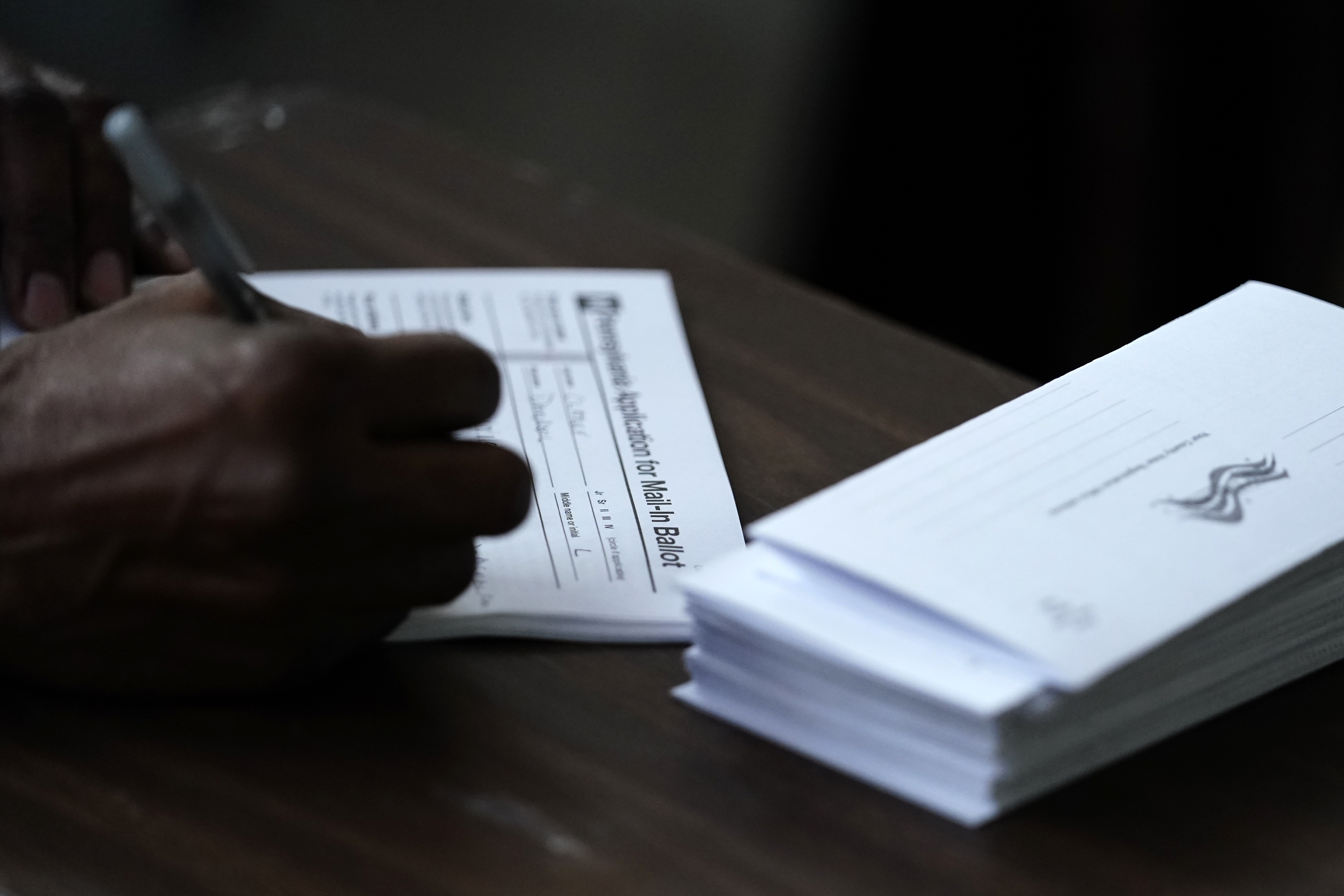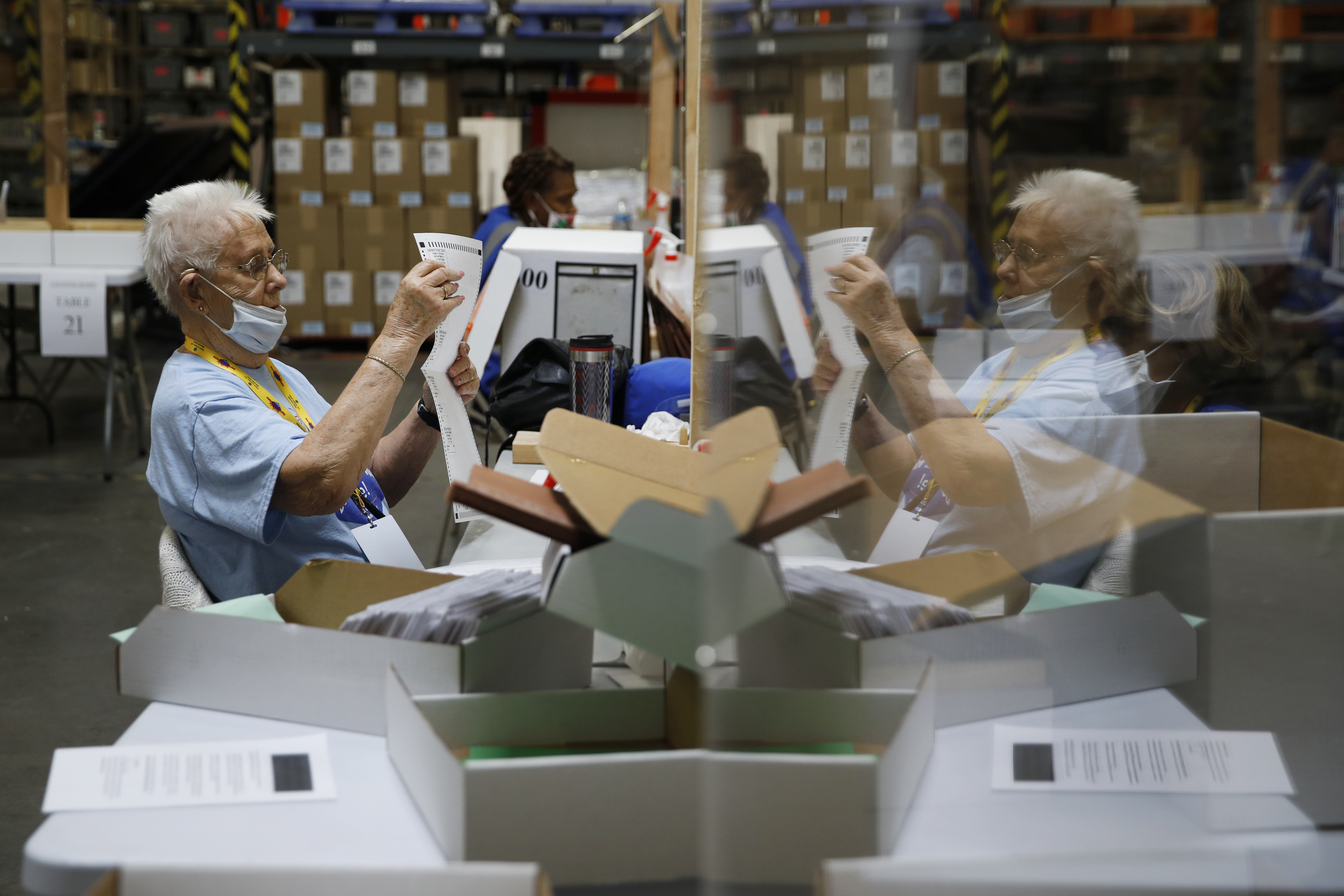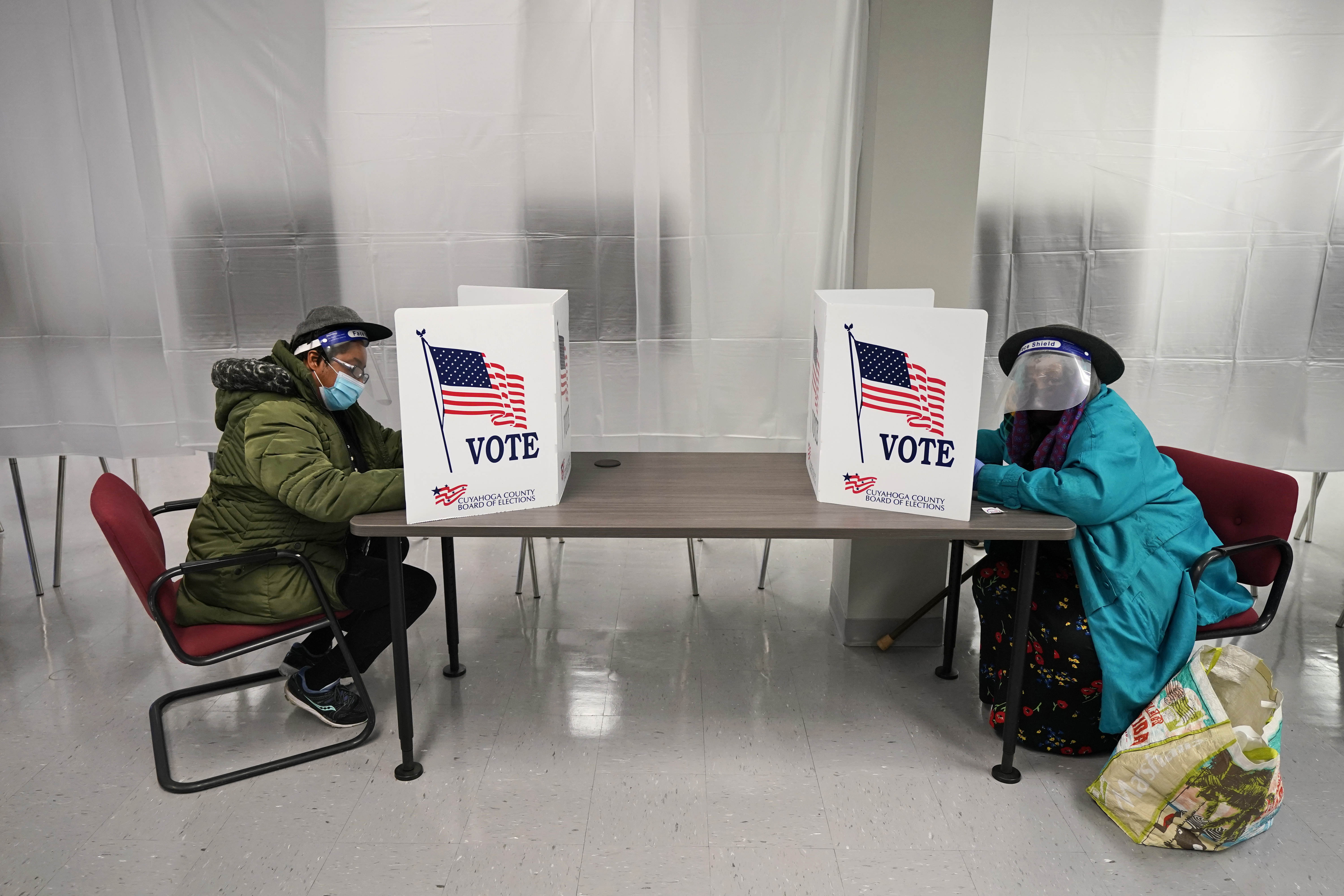
A resident fills out an application for a mail-in ballot before voting at the opening of a satellite election office at Temple University's Liacouras Center in Philadelphia, September 29, 2020. /AP
A resident fills out an application for a mail-in ballot before voting at the opening of a satellite election office at Temple University's Liacouras Center in Philadelphia, September 29, 2020. /AP
On Monday, the U.S. Supreme Court let stand a court ruling by Pennsylvania's highest court that allows election officials in the state to count absentee ballots received within three days after Election Day.
The ruling was a major win for the state's Democratic Party, who filed the lawsuit in light of the coronavirus pandemic, citing postal service delays. Republican legislators, in response, appealed on the ground that the court's ruling would violate the federal election law, which mandates holding elections on a single day throughout the Union.
Given how close the race is in the swing state of Pennsylvania, the ruling is likely to be one of the most consequential election lawsuits. Across the country, the courts are seeing an unprecedented number of election lawsuits. Many have to do with mail-in voting, centering around when and how the votes should be mailed.
What are those lawsuits about?
Amid the pandemic, states have been pushing to expand mail-in voting in a bid to ensure voter access. But so far, Democrats have obtained a lead in absentee-ballot requests over Republicans. According to statistics from the U.S. Elections Project, registered Democrats now have a 10,269,131 ballot requests lead over registered Republicans.

Privacy booths are seen at a satellite election office at Temple University's Liacouras Center, Philadelphia, U.S., September 29, 2020. /AP
Privacy booths are seen at a satellite election office at Temple University's Liacouras Center, Philadelphia, U.S., September 29, 2020. /AP
President Trump has never been reticent about his skepticism towards the vote-by-mail system. He accused the vote-by-mail system as rife with fraud, saying that the extended use of mail-in ballots would make 2020 "the most corrupt election in the history of our country."
In the 2016 election, 33 million people voted by mail; in 2020, that figure could reach 80 million. The expansion of mail-in voting and the perceived partisan advantage of mail-in voting for Democrats spawned around 286 election-related lawsuits, according to Stanford MIT Health Elections Project that tracks election law cases arising out of the COVID-19 pandemic.
At the heart of the lawsuits is the clash between expanding voter access to curbing election fraud. While the Democrats generally supported measures to increase voter participation, e.g., loosening signature-matching requirements for absentee ballots, providing an extension for counting absentee ballots, or allowing absentee ballots to be collected and turned in by third-parties, Republicans call those measures "ballot harvesting", saying that they are likely to breed voter fraud.
Competing lawsuits over the legality of those practices have been going on in several states, and the stakes were particularly high in key battleground states, such as Wisconsin, Florida, Michigan, and Pennsylvania.

Election workers process mail-in ballots during a nearly all-mail primary election in Las Vegas, June 9, 2020. /AP
Election workers process mail-in ballots during a nearly all-mail primary election in Las Vegas, June 9, 2020. /AP
Earlier this year, the Supreme Court blocked a court order from federal judges in Wisconsin that extended the deadline for absentee voting in the state by six days. The unexpected ruling sowed confusion among voters who found that they had little time to return their ballot if the extension was canceled.
In Iowa, the highest court sided with the GOP in saying that auditors who mailed absentee ballot request forms with the personal information of voters written overstepped their authority. The state's rule required auditors to mail blank absentee request forms to voters. The ruling, as a result, invalidated around 5000 completed forms.
According to the Stanford MIT Health Elections Project, election litigations have taken place in 43 states, Washington D.C. and Puerto Rico. In an appeal sent to the Supreme Court, the Republican National Convention wrote, "the question is not going away, and this Court should intervene now to provide guidance to lower courts before the rapidly approaching federal general election."
Rick Hasen, University of California Irvine law professor, said in an interview with NPR that the Supreme Court's ruling on Pennsylvania signals that the four conservative judges on the Supreme Court believe that a state Supreme Court doesn't have the power to rely on a state constitution in expanding voting rights if a state legislature doesn't want to.

Two voters fill out ballots during early voting at the Cuyahoga County Board of Elections in Cleveland, October 6, 2020. /AP
Two voters fill out ballots during early voting at the Cuyahoga County Board of Elections in Cleveland, October 6, 2020. /AP
This makes the ideological composition of the Supreme Court justices particularly important. In the ruling issued on Monday, the Supreme Court did not provide any reason for granting the stay, but it was clear that the court's action was a result of a deadlock. All four conservative justices sided with the Republicans, while Chief Justice John G. Roberts Jr. sided with the liberal judges in the ruling.
But the confirmation of Judge Amy Coney Barrett is likely to change the balance of power on the Supreme Court and may affect how the ruling turns out to be for cases pending before the Supreme Court.
As Trump suggested that he may not accept the election result if it turned to be a disappointment for him, there are fears that post-election litigation may come. The historic 2000 election that was decided with a 5-4 Supreme Court ruling was still fresh in many people's memory, and some fear that in a close race like this year, a contested election may happen.
The Trump campaign and that of Biden have already lawyered up their campaign teams, according to American media reports, retaining law firms and amassing volunteer lawyers to prepare for post-November 3 disputes, if there are any.
As the election day draws close, the legal maneuvering across states goes on.